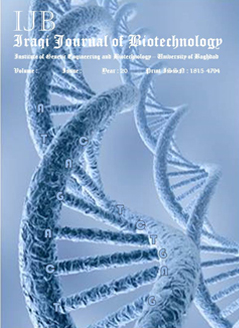Detection of Antiseptic Resistant Genes and Biofilm Formation in Multidrug Resistant Staphylococcus aureus in Baghdad Hospitals
Abstract
Staphylococcus aureus, a leading cause of serious human infections in both healthcare and community settings.Isolates belonging to the S. aureus were isolated from different clinical sources from different hospitals in Baghdad For the period from 1/9/2019 to 30/11/2019.The antimicrobial susceptibility test was performed by the disk diffusion method. Results showed that all isolates resistant to ceftazidime , and for pencillin G were 95% Likewise, the resistance to erythromycin, azithromycin, tetracycline, and ciprofloxacin were 46%, 44%, 37%, and 20%, respectively,The biofilm formation was assayed by the microtiter plate. Of the 50 isolates, 44 (88%) were biofilm producer.The minimum inhibitory concentrations (MIC) for Benzalkonium chloride was less than 2 µg/ml and for chloroxylenol ranged from 900_1950 µg/ml and povidone-ioden10% reach to 12500 µg/ml. Polymerase Chain Reaction using to detection of genes norA , qacA/B1 , qacA/B2 and smr, the results showed that norA gene found in 97.5 % of isolates, qacA/B1 gene found in 2.5%, and qacA/B2 in 5% , While the smr gene was not present in any Isolates.


